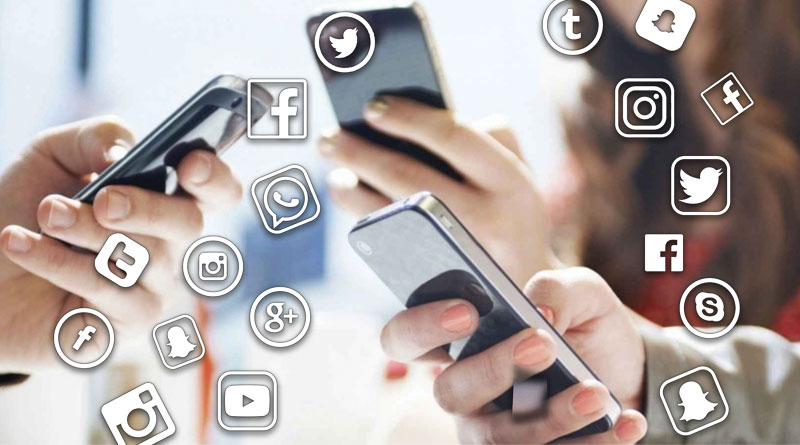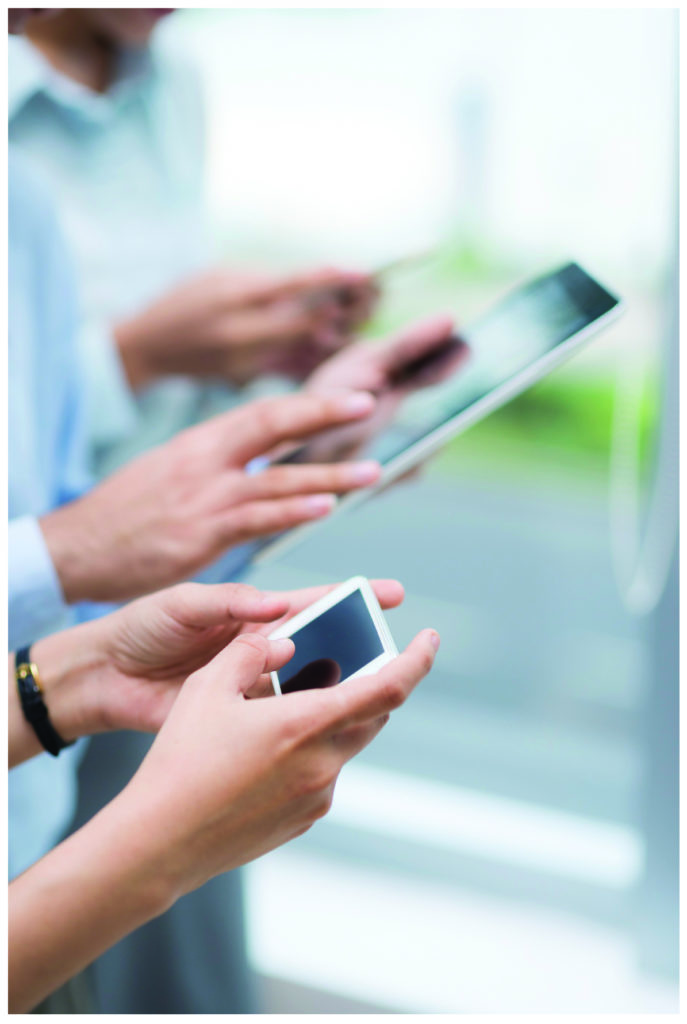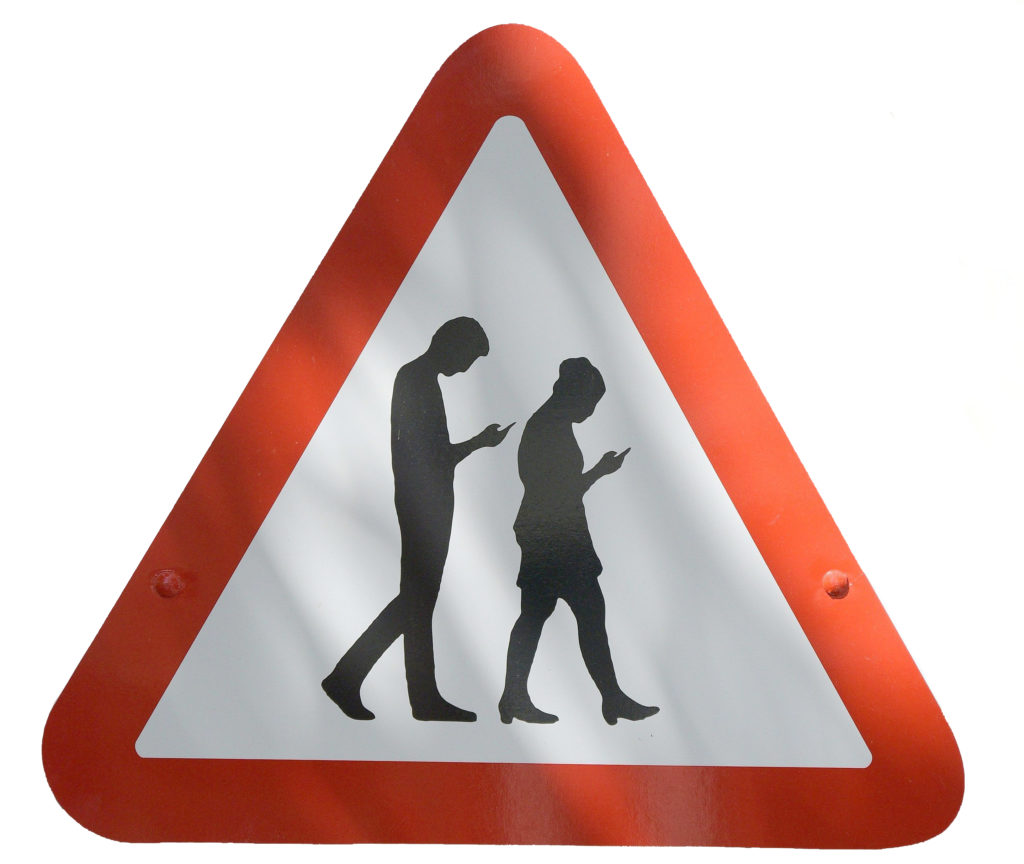Social Media: Friend or Foe?
By: Diana Bello Aristizábal
DORAL, FL – Since social networks were first created, they have grown exponentially until becoming a basic platform for business, entertainment, and socialization, to the point that according to Ad Espresso statistics of June 2018, only in Instagram were logged about one billion monthly active users and nearly 500 million daily active users.
The power and influence of social media in people’s lives was highly noticeable on March 13 when for a large part of the day, Instagram, Facebook, and WhatsApp simultaneously went down, bringing great concern among users who massively published memes and messages about this once the service was reestablished.
As it was expected, one day later Facebook explained through its Twitter account that the interruptions in the service occurred due to a server configuration change. However, users were not pleased and the media described the issue as “one of the worst setbacks in history.”
This event, which nobody remembers today, made us analyze how positive is the current use we give to social media, and whether it is good or not that they have become our main route to communicate with one another, more so taking into account that in recent years there have been some problems associated with an incorrect use of social networks, such as decreased labor productivity, anxiety, and loneliness, among others.
In this regard, experts in digital marketing and social media agree that they are not harmful by themselves, because they were created in order to connect people with common interests, bring together relatives and friends and present information on different topics.
 “Social media allow us to expand personal and business growth ideas, do networking, attract customers, and promote sales, new companies or any positioning strategy,” says Lorelein Gonzalez, personal brand consultant, and marketing expert.
“Social media allow us to expand personal and business growth ideas, do networking, attract customers, and promote sales, new companies or any positioning strategy,” says Lorelein Gonzalez, personal brand consultant, and marketing expert.
In addition, users can choose the kind of content they want to see. “This works through an algorithm that filters what is shown according to the ‘likes’, searches, comments or information shared by each user, with the purpose of only showing information of different brands or products that match his or her interest,” explains Johana Arocha, bachelor in computer science, blogger and consultant in e-commerce and social media.
This dynamic is a competitive advantage for companies because it allows them to carry out marketing campaigns aimed at a more specific niche, while users receive personalized content every time they log in their accounts.
Although social networks offer many possibilities, its downside is often experimented by those who spend a considerable amount of time per day connected to them without control, have no boundaries when it comes to sharing personal information or are addicted to content.
According to Ronaldo García, digital marketing coach and social media teacher at Miami Marketing School, this unbalanced behavior is seen mainly in people under 45 years of age.
“According to the latest statistics, people between 35 and 40 years are the most active ones in these platforms and, overall, in smartphones, while those over 45 are not,” he states.
The root of the problem
For Martha Maduro, Director of On the Path Again Counseling Center, family and couple therapist, according to recent research, the unreasonable use of social networks find its root in the loneliness and self-centeredness that exists in today’s society.
“People who do not get what they want in real life, look for it in social media. This is clear when someone uploads an image, receives many ‘likes’, and starts needing more and more attention becoming addicted to it,” says Maduro.
According to her, the problem with this is that human communication is increasingly limited because the ability to connect with others, integrating the five senses, is being lost.
“Personal communication can’t be completely replaced,” states Maduro, because non-verbal expressions, such as a look, a hug or a smile, send together with a clear message and not a twisted one as it happens, sometimes, in digital environments,” says the therapist.
Lorelein Gonzalez has a similar opinion. She states that people use social media unreasonably because they seek external recognition instead of strengthening themselves as individuals or professionals.
 For Ronaldo García, the problem lies in smartphones because through them people can access not only to social networks but listen to music, watch videos, have a calendar, pay bills, take photos and watch the news, among other possibilities.
For Ronaldo García, the problem lies in smartphones because through them people can access not only to social networks but listen to music, watch videos, have a calendar, pay bills, take photos and watch the news, among other possibilities.
“In the past, when we wanted to watch television, we had to be at home, if we wanted to play a video game we needed a videogame console, and if we wanted to listen to music, a sound system. Now everything is integrated into the cell phone that we can take everywhere with us,” says Garcia.
This reality, according to the expert, helps to create addiction in people because mobiles have become indispensable devices that generate content constantly, and social networks are the number one content producers.
But what behaviors in users could indicate an incorrect use of social media or addiction to content? According to García, spending too many hours a day hooked to social networks, posting only ‘selfies’ or information of oneself and creating fake accounts to attack other people or commit crimes.
For Martha Maduro, being distracted regularly or being incapable of following instructions, failing to remember long-term events, isolation, and low self-esteem are also red flags.
However, the real effects of the excessive use of social media will probably be seen in the long-term when the present generation enters adulthood, in about 10 to 15 years. Meanwhile, people can follow some guidelines to help reverse their negative impact.
Setting out basic rules
To start, it should be noted that everything done within social networks leaves an indelible digital fingerprint, which means that all shared content is stored in search engines and on the Internet. “This happens even if someone hardly posts because he or she still clicks ‘like’, makes searches and shares information,” says Johana Arocha.
Therefore, it is crucial to be aware of everything we post and, first and foremost, not sharing private information, such as telephone numbers, addresses or compromising content. “We must avoid putting ourselves in risky situations, like being chased by a stalker, especially children who do not understand the magnitude of their actions,” says Garcia.
In this line, another recommendation is to control the use of social networks in children under 18 years of age, because they are currently using them, even though are meant only for adults.
“It is important to know what our children do on their cell phones due to the fact that recently the amount of information sent by minors, through these devices, has been growing,” says García, who explains that although social media was not designed for them, there is still little control over the kind of content they see.
 To solve this issue, parents and caregivers can contact their smartphone providers, as some offer the possibility of restricting access to social networks. However, Ronaldo García suggests establishing basic rules at home, like managing their children’s social accounts or letting them use only those used by parents.
To solve this issue, parents and caregivers can contact their smartphone providers, as some offer the possibility of restricting access to social networks. However, Ronaldo García suggests establishing basic rules at home, like managing their children’s social accounts or letting them use only those used by parents.
On the other hand, it is vital to control the time spent on social media making use of the different applications available for cell phones and computers, as FocusMe. iPhone users can try the Screen Time feature displayed in the latest upgrades, which allows selecting a time frame for each social network.
“This feature is great for someone who is not very productive due to his or her social media addiction. By using it, the person can know in which social network is spending more time to start gradually reducing the hours,” says Johana Arocha.
About this, Ronaldo García says that it is important to do so especially in the workplace. “If you check your social networks accounts during office hours, somehow you’re failing your employer as you are not being paid for that,” he says.
His recommendation is to set small goals to lower the number of hours dedicated to them, after checking which social network is used the most. “If you spend seven hours in social media, you will have seven hours of unproductiveness,”, he declares.
In addition to limiting the number of hours, Martha Maduro advises determining the specific moments of the day when social networks would be off-limits, like after waking up, during friends or family meetings or at work.
The therapist also suggests using social media as a platform to make the first contact with someone to, later on, arrange a face-to-face meeting. “Let’s try to extend communication beyond a chat or a wall by inviting people for a coffee or an interview,” she says.
On another note, according to Johana Arocha it could be a good idea to charge cell phones outside of bedrooms to avoid checking them before going to sleep when the brain should be at its most relaxed state. “By not having them close to us, we could have more moments of disconnection in order to stop the addiction,” says the expert.
Additionally, she encourages people to remember that social media is a virtual world and not the real one. Therefore, engaging in meaningless disputes, and controversial topics or taking negative comments too seriously is not healthy.
Finally, Lorelein Gonzalez speaks about the importance of being wise and strategic when it comes to content. “The kind of content we feed ourselves with will depend on what we decide is more useful to us. When we know that, we begin to make a correct and positive use of social media,” she points out.


There are plenty of Hispanics ( being SPECIFIC ) in Miami addicted to texting and pouring perfume / cologne on themselves .
Am I wrong ?
They come in ALL ages because IMO there seems to be a thinking that it is just the younger people who text non stop . Same with those who pour perfume / cologne on themselves .
Everyone has been in a line in a store which was held up due to a customer texting .
These people aren’t malicious so I don’t take it personal but they are inconsiderate .
There are a lot of inconsiderate people in Miami and Miami is ” famous ” for this but again don’t confuse lack of manners with being malicious and take things to heart .
I think social media is the worse thing for kids . They fight , tear each other up on line and the bullying can go on and on .